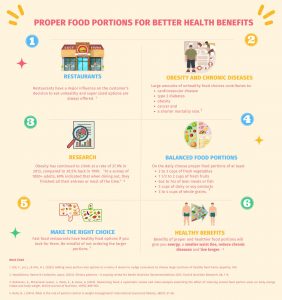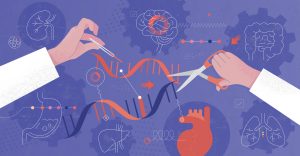Diamond Smith has struggled with excessive facial hair since the age of fifteen. She would shave her face in the morning and then notice the hair returning later in the evening. At that time, Diamond was unaware of the cause of her hair growth. Little did she know that she had a condition known as Polycystic Ovary Syndrome (PCOS). This was a disorder that caused an imbalance of hormones, and was extremely common in women. However, Diamond was unaware of this, and her self-esteem plummeted over time. After years of struggling with her hair growth, Diamond decided to seek help on a medical show called The Doctors. This was a reality show featuring a group of doctors who help find a diagnosis for patients with extreme conditions. In the episode, Diamond opens up about her personal struggles with the hair growth: “I have a beard” she says blatantly.1 Diamond explained that she gets ridiculed everyday by strangers, confessing that they even question her gender at times.

This is not uncommon for those with PCOS, as facial hair on women is still seen as a cultural taboo. Many do not understand that the excess hair growth is due to excess production of testosterone, a male hormone. A more specific explanation requires a clear understanding of PCOS. As it is an ovarian-based disease, PCOS affects a woman’s menstruation cycle and the hormones produced at that time. Normally during a women’s menstruation, a hormone known as FSH is secreted to the ovaries. This allows the eggs to mature and secrete another hormone known as estrogen, which causes the eggs to be released and either be fertilized, or shedded at the next menstruation cycle. In women with PCOS, too much estrogen is produced and causes the eggs to not mature. Instead they remain as fluid-filled sacs known as cysts, which are not shed during menstruation. This causes an array of symptoms, including irregular menstruation cycles, infertility, acne, and hirsutism (excessive hair growth). The hirsutism is caused because there is too much insulin in the blood, along with too much estrogen. The combination causes high levels of testosterone to be produced, which leads to abnormal hair growth and acn.2

Initially, the hair growth was slightly excessive, but still tolerable. Diamond would only have to shave once a week, and although people sometimes teased her, she was hardly affected by it. Once she entered her twenties, her condition worsened dramatically. Diamond began to shave daily, but her facial hair was still visible. On the show, Diamond dismally explained how she would try hair removal creams and waxing in hopes of diminishing the hair growth. Unfortunately, this did not improve her condition:”it just keeps coming back” she says on the episode. It takes three hours for Diamond to get ready for her day; she shaves her face before applying layers upon layers of foundation. Although Diamond tries her best to disguise her condition, people still notice and make rude remarks.“The amount of self-pity I put myself through every single day, it hurts,” Diamond says, as she breaks down in front of the studio audience. At this point, Diamond is still unaware that she has PCOS. In fact, Diamond believes that she caused the excessive hair growth. She wishes to have never shaved in the first place. “If I never would have shaved my face, maybe it wouldn’t have grown as bad as it did,” she says. When asked about the hardest part of her condition, Diamond said it was isolation from her family. “I want to stay home,” she says, instead of going out in public to be ridiculed.3 Diamond does not own any social media, and has isolated herself from the public because she is extremely embarrassed.
Diamond has been reluctant to receive a diagnosis in the past because she feared the results. However, she decided at twenty-three to find a proper diagnosis for her condition. In the episode, Diamond met with OBGYN specialist Dr. Nita Landry, for a consultation. Since excessive hair growth is a sign of androgen production, an ovarian-based disease was suspected. There are a few ways to diagnosis PCOS. The three defining characteristics of PCOS is hyperandrogegism (excess testosterone), irregular menstrual cycles, and having one or multiple cysts in the ovaries. Similar to Diamond, 80% of women with symptoms of excess androgen have PCOS. Since hyperandrogegism causes excessive hair growth, hirsutism is a common symptom of PCOS. Therefore PCOS can be diagnosed simply through physical appearance. The patient may have hirsutism, moderate acne, or other physical symptoms such as weight gain or hair loss. If the patient has three or more of these symptoms, they most likely have PCOS. Another method to diagnose PCOS is through a pelvic exam.A pelvic exam allows any problems with the ovaries or uterus to be detected, which is another sign of PCOS. Blood tests can be used to detect high levels of male hormones, but can also be used to check insulin and cholesterol levels.

Additionally, a more technical method for diagnosis involves an ultrasound of the ovaries. The ultrasound will reveal abnormal follicles, or cysts in the ovaries. The cysts are indicated by the large circular black dots within the ovaries. 90% of women with hirsutism are also found to have polycystic ovaries through the ultrasound. The hirsutism can be evaluated used the Ferry-man-Galley scoring system, which ranks the growth of hair between a scale 1-8.4 The intensity of PCOS can range from mild to severe. Although Diamond has a serious form of hirsutism, 50% of women with PCOS have a much less severe case. Additionally, there may be lower androgen levels, or only a few cysts in the ovaries. Nonetheless, all of these methods are effective ways to diagnose PCOS.
In the episode, Dr. Landry informed Diamond that she will do some blood work and an ultrasound to find out what’s wrong. She then asked Diamond if she had ever been depressed because of the hair growth. Diamond admitted to having depression as well having thoughts of self-harm. Diamond said how comments from other people replay in her head over and over again. Dr. Landry comforted Diamond, and assured her that there will be a solution. “Although we’re here to address the hair growth, we also need to address the emotional aspect of this,” she tells Diamond. Studies have shown a correlation between women with PCOS and mental illnesses such as depression, anxiety, and bipolar disorder. The exact cause for this is unknown, but scientists speculate that it is due to the insulin resistance and hormonal imbalance. Women with PCOS may also feel unhappy with their physical experience and have personal trouble with their femininity. This was the case for Diamond, and the cruel remarks made by strangers have severely affected her. Dr. Landry understood the emotional turmoil Diamond has been through. “At the end of the day, I want you to feel good when you look in the mirror,” she tells her.
Diamond returned to the show after a few weeks for her results. She nervously awaited her diagnosis, and sat with the rest of the doctors in front of the studio audience. Dr. Landry then explained that PCOS is the most likely condition from Diamond’s results. She assured her that Diamond did nothing to cause this and that there may be a genetic link to the disorder. Diamond then revealed how other members of her family have been struggling with this.3 Although the exact cause is unknown, there is a strong correlation between genetics and symptoms of PCOS, such as insulin resistance and hormone levels. Researchers predict that there is not a single PCOS gene, but various genes that are expressed.6 This is why PCOS has a wide range of symptoms and develops differently for each woman.7 Dr. Travis, another doctor on the panel, explained how PCOS is one of the most common endocrine disorders in women. As part of the show, Diamond was able to receive five sessions for advanced laser skin care for her hair growth. The doctors on the show also wanted to treat Diamond’s emotional turmoil, and provided her with three free sessions with a licensed therapist. Diamond expressed her gratitude on the panel. “I’m happy, I’m thankful,” she says, although she still feels incredibly insecure. “I want people to see me for me,” she pleads. The doctors on the panel comforted Diamond and certified that she would feel better soon. Although Diamond’s main concern was the excessive hair growth, there are several other risks for PCOS as well. This includes heart disease or Type 2 diabetes due to insulin resistance.8 Diamond was also appointed to meet a doctor regularly to ensure that the underlying symptoms of PCOS was also being treated.

A few months later, Diamond returned to the show with an incredible transformation. She looked stunning on stage as she greeted the doctors with a warm smile. She continued to radiate on stage. “I feel great, I feel wonderful.” It was evident how much her confidence had grown after the treatment.9 Diamond was able to remove most of her excessive hair growth through the laser treatment, but she was also prescribed the appropriate medication for the other symptoms of PCOS. While this is one way to treat PCOS, a healthy lifestyle has been shown to decrease the symptoms of PCOS significantly. Although Diamond wanted to eradicate her facial hair, other women with PCOS have grown to embrace it. This includes Harnaam Kaur, a British model and anti-bullying activist, and Annie Jones. Annie was part of Barnum & Bailey’s circus in the 1800s, and was referred to as “The Bearded Lady.” Whether women with PCOS decide to embrace their excessive hair growth or not, it is important to be mindful of how our words impact others. Hopefully, knowing the underlying causes of excessive hair growth will help us be more enlightened about this condition in the future.
- Why Am I Growing A Beard? | The Doctors, video file, 5:13, YouTube, posted 2016, https://www.youtube.com/watch?v=_Z6bL7yReJY. ↵
- Polycystic Ovary Syndrome | PCOS | Nucleus Health, video file, 5:27, YouTube, posted 2011, https://www.youtube.com/watch?v=FsNKyKS7M_s . ↵
- “Woman with Beard Gets Diagnosis,” video file, 5:09, YouTube, posted 2016, https://www.youtube.com/watch?v=0R03Xsvh6IQ. ↵
- Adam Felman, “What to know about hirsutism,” January 2019, Medical News Today (website), https://www.medicalnewstoday.com/articles/182659.php. ↵
- “Woman with Beard Gets Diagnosis,” video file, 5:09, YouTube, posted 2016, https://www.youtube.com/watch?v=0R03Xsvh6IQ. ↵
- Mohgah Elsheikh and Caroline Murphy, Polycystic Ovary Syndrome (Oxford: OUP Oxford, 2008), 20-21. ↵
- “Polycystic ovary syndrome (PCOS), Mayo Clinic (blog), https://www.mayoclinic.org/diseases-conditions/pcos/symptoms-causes/syc-20353439. ↵
- Gaber Kovacs, Polycystic Ovary Syndrome (Cambridge, UK: Cambridge University Press, 2000), 26, 44-55. ↵
- “Woman Plagued by Excessive Facial Hair Returns with an Amazing Transformation,” video file, 4:05, YouTube, posted 2017, https://www.youtube.com/watch?v=FI-k9mpBmWc&t=74s. ↵



101 comments
Diamond Estrada
Having read this article, I can’t help but feel bad for her. Before reading this, I had no idea that this was the cause of a genetic disease called PCOS. I think many people are accustomed to “judging a book by it’s cover”. I can only imagine the harsh things that have been said to her growing up. People can be mean and have no sense of respect or manners towards other people. Additionally, I find it very admirable that the doctors not only focused on diagnosing and treating her condition but also attending to the issue that arises in mental health. I think many times when it comes to instances like these, people tend to forget how important it is to also take care of your mental health in the process of treatment.
Julia Patrick
After reading this, it made me so happy to see that Diamond went out and got help even though she was so scared. I think it’s important that people go out and ask for help if they know something is wrong, especially when it is affecting their mental health or health overall. Diamond’s story was put on such a public platform that now other women are able to see that they can get help if they are suffering the same way she did. Her story just shows us that we can’t judge others based on their appearance because you never truly know what is going on with them personally.
Pablo Medina
It is crazy how Diamond had to go through so much bullying and hate for a medical condition that she herself did not know or understand. The emotional damage that must have caused to her is saddening. There has to more awareness for medical conditions such as PCOS for people like Diamond who don’t know what is going on with their body or why certain things are happening, so they are able to address the issues earlier in life so women don’t have to go through the same things Diamond had to go through.
Isabella Torres
I can’t even imagine the insecurity Diamond must have felt. It broke my heart when I read the part where Diamond explained that the self-pity she went through was extremely painful. Most teenage girls are already hyper-critical when it comes to self-appearance and many individuals have no filter when it comes to expressing their opinions. I think it’s unfortunate that it took such a long time for Diamond to get a diagnosis because her happiness during her teenage years was stripped away. However, it’s amazing that the doctors were able to greatly improve her condition in just a few months.
Javier Camacho
After reading this article the first thing I could think about was how women must have dealt with this many years ago before there was a diagnosis for it. The other thing that came to mind was “If Diamond considered self harm, how many other women in the past may have attempted to or actually took their lives due to not knowing they had a medical condition?”. But today, thanks to modern medicine, many women with this condition and many other people with other unique medical conditions can be helped and informed that there is a way to feel normal and even reduce the amount of people who are clinically depressed. I feel sorry that Diamond had to go through what she went through because of people who felt the need to put her down, but now I feel very happy for her knowing that our science and medicine has become so advanced that we can find the source of unique conditions like PCOS.
Rahni Hingoranee
These days people are so hateful towards each other and in Diamond’s case it caused some severe anxieties for her about her appearance. This is a struggle many young women know and relate to all too well. As this article progressed I was pleased to find out that Diamond was more accepting of her condition and therefore received all the necessary treatment so that she could look and feel better for herself. I hate the fact that she was so embarrassed of it that she did not want to even know what was wrong with her. This is because of a stigma society puts on people who are ‘different’ in some way. I’m glad she is more comfortable with herself now and brave to show that to the world.
Raul Vallejo
Extremely glad to find out that the doctors gave her a correct diagnosis for her condition. Very important that this article talked about the emotional stress that Diamond went through as well because many times with conditions, especially physical ones like these, in can very much hurt the confidence of the person with it making it much harder to deal with.
Maranda Avina
This article was educational on the condition of Polycystic Ovary Syndrome (PCOS). I had not heard of this condition before reading this and was intrigued to this article due to my love of the circus. Speaking of the Circus, they have exhibits called freak shows, where people pay to see people that are not like other’s in normal society. Some of these people in these freak shows have medical conditions that make them “freaks” and on-lookers tend to belittle and berate them just because they were born a certain way. Which is what normal society has become where if people don’t fit the norms of society, they are outcasted, criticized, and judged. Fortunately, there are avenues people can seek to get help like Diamond did, and be able to overcome the criticism and live a normal healthy life.
Yadira Chavez
What this article reveals to me is that our healthcare system is broken, even if the doctors allowed for Diamond to undergo a transformation. Diamond suffered for YEARS and was too embarrassed of the way she looked to ask for help, for fear that she would be judged. We put a lot of pressure on women as a society, and a lot of us go through things unnecessarily because we are too afraid to ask questions. Diamond only received help by putting herself out there and going on Television, which most people would never do. It is a sad reality, but I am very glad that she got the help she needed, both physically and emotionally. I think that in an effort to help others, the health system needs to push more on making information more accessible people.
Kasandra Ramirez Ferrer
In today’s we had advanced from such judgemental times where people used to judge for every single thing and to some even call them freaks. Still, on this day people judge and criticize others without considering that they may have a medical condition of some sort of, this causes people like Diamond to feel bad about themselves and carry not only the burden of their condition but also have to deal with the looks and judgment from other people every day. However, thanks to the advances of modern medicine, people like Diamond can treat their condition and prevent others from feeling like Diamond felt once.